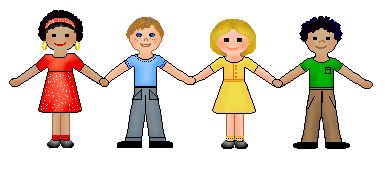Our early childhood curriculum Te Whāriki states that learning dispositions have been identified as valuable to support lifelong learning. Resilience is a disposition that is mentioned in the curriculum. Evidence of learning and development is demonstrated when children show a “Capacity for self-regulation and resilience in the face of challenges” (Ministry of Education, p. 27, 2017). So, the question is, how do we as kaiako role model resilience?
This reflection of mine was prompted by a workshop that I attended at the 2018 EC-MENz Summit at Gems Educational Childcare situated by Lake Hayes, in Queenstown. The facilitator was Karen Hayward and the title was 'Getting Wired'. The focus was on knowing your 'Why', a focus to up one's motivation, as well as growing resilience, to thrive as a professional early childhood teacher. This made me wonder how we as teachers, demonstrate resilience to children in our care.
The International Resilience Project states that, "resilience is a universal capacity which allows a person, group or community to prevent, minimize or overcome the damaging effects of adversity" (Grotberg, 1995). The project also suggests that there are three sources that promote resilience and describe them as, ‘I have, I am, and, I can’. All children will face adversities in life at some stage or the other. In order to overcome and face these adversities adult support is required. As such, adults need to promote and role model resilience with young children in their care. Responding to situations in children's presence demonstrates how adults can promote resilience in a positive manner.
There are a number of research articles that suggest the importance of role modeling actions and behaviour alongside children in their care. Children can be overwhelmed in certain situations and if resilient action and behaviour are role modeled in front of children, they themselves develop the capacity and strength to overcome adversity. As resilience is inherent in all children, adults promote it through their own actions, interaction and support with all children in their care. As resilience is promoted and supported, children then become increasingly competent in promoting their own resilience.
Children who face situations of fear and trauma are often vulnerable and fearful of what they cannot comprehend along with the outcomes of that trauma. Attitudes and beliefs that children have lay the foundation for building their skills to cope with adversity. These attitudes and beliefs are strengthened through a positive interaction and role modeling with adults. The development of this strength to face trauma is a skill built on the child's own behaviour and temperament as well as actions that have been role modeled by adults in the child's presence.
The concept of resilience needs to be addressed with children along with discussions around how to face and overcome different traumatic situations. Stories can be told about how individual children have overcome hardships through their own set of skills. Talking about how children have developed their resilience through the confidence that they have built within themselves from adults role modeling a set of skills, will also promote the concept of what resilience means for them.
Resilience can be enhanced and supported in early childhood. How children cope with and recover from traumatic situations applies to their resilience to do so. In a study prepared for the Ministry of Social Development by Duncan, Bowden and Smith (2005), titled, "Early childhood centres and family resilience", resilience has been described as, "the ability of an individual and family to appraise the demands of different situations and to apply a set of skills and knowledge that enable the individual or family to “cope” with and “recover” from significant adversity or stress". Coping and recovering are the key words used in this definition and apply to how children cope and recover from their adverse circumstances with positive outcomes.
The skills to cope and recover from adverse situations are promoted in an early childhood setting in a number of ways. Duncan et al. (2005) suggest that, "Having a teaching team who were sensitive to family issues and difficulties and who shared a concern for looking after the best interests of children was seen by many parents to be important". Children develop attachments to their teachers who they look upon as positive role models for guidance. If teachers are aware of adverse conditions at a child's home they are able to discuss these issues with the child's interest at heart. This support gives the child confidence and helps to promote their skills to face their hardships. The experience builds on their resilience to cope with similar difficult situations.
In conclusion, resilience is an important disposition for children to cope and recover from adversity. I conclude by quoting Daryl Connor who says that, “Resilience is the ability to absorb high levels of disruptive change while displaying minimal dysfunctional behaviour”.
“In Te Whāriki, learning dispositions and working theories are seen to be closely interrelated” (Ministry of Education, p. 52, 2017).
References
Duncan, J., Bowden, C., and Smith, A. (2005). Early childhood centres and family resilience. Centre for Social Research and Evaluation. Te Pokapū Rangahau Arotaki Hapori
Grotberg, E., (1995). A guide to promoting resilience in children: strengthening the human spirit. The International Resilience Project. Bernard van Leer Foundation, 1995.
Ministry of Education. (2017). Te whāriki: He whāriki mātauranga mō ngā mokopuna o Aotearoa. Wellington, New Zealand.
